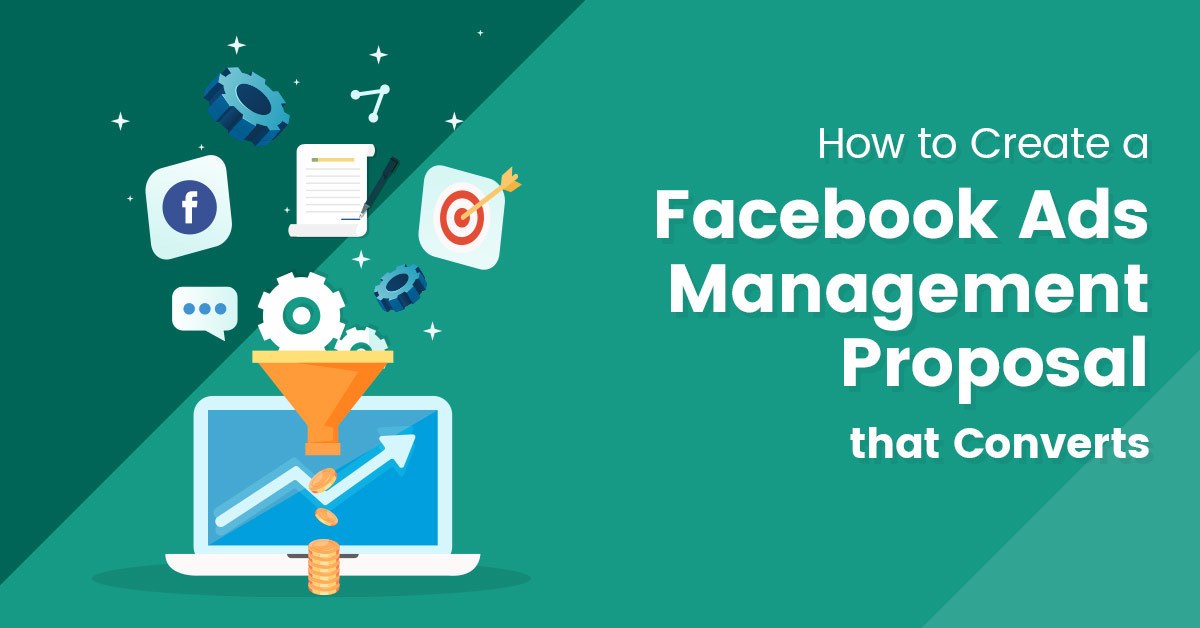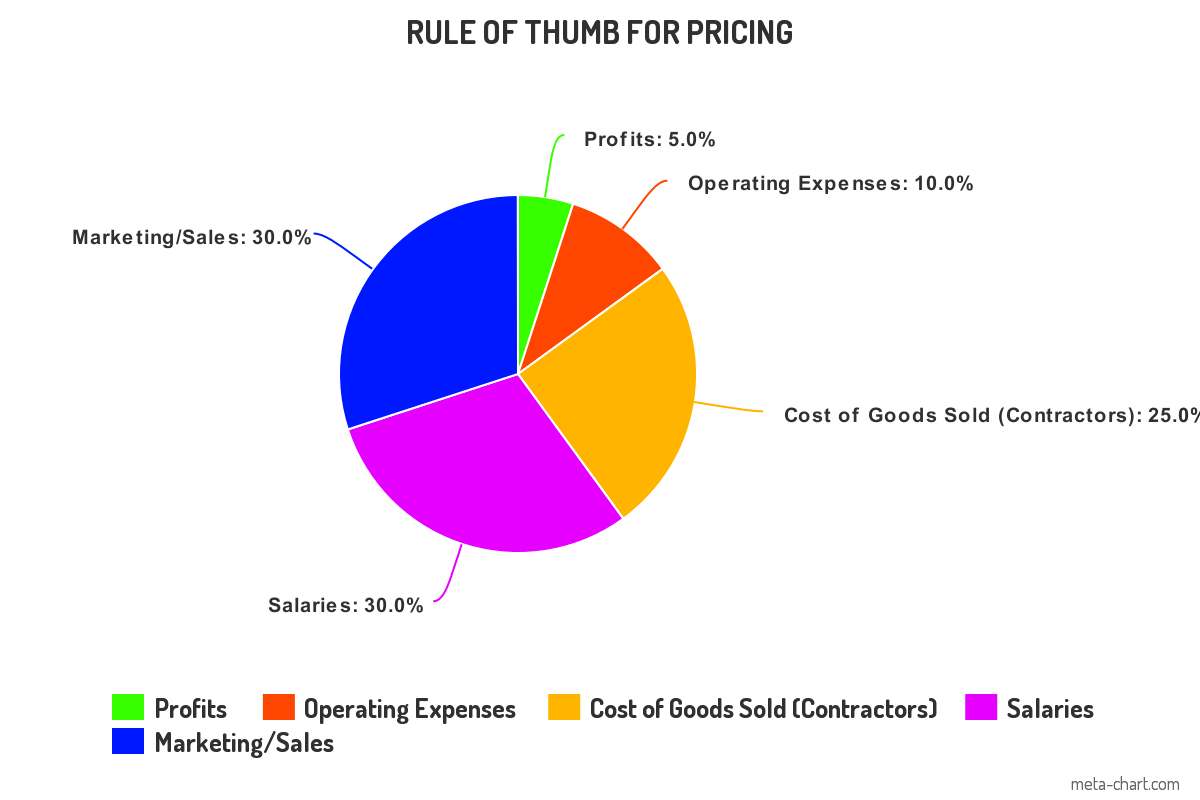Special Offer
I didn't do anything to get my first client from the partner program. FunnelDash handled everything from generating the lead, facilitating the initial discovery call, the follow up call, the on-boarding call, and even the payment collection. It couldn't have been better! Not to mention the client was SUPER impressed..

Michael Veinbergs
Mach 4 Marketing
Want More Agency Clients?
Get 1-2 new clients hand delivered to you each and every month
This post was originally published on November 7th, 2017, as Seal the Deal with Your Client on Facebook Ad Management Services. We have since updated this post to reflect changes in the FunnelDash app and offerings.
One of the most useful toolsets FunnelDash offers is the Agency Funnels, which help you attract potential clients for your digital marketing agency.
You should have an Agency Funnel set up so potential clients are being encouraged to sign up for your full, free Facebook audit. You should also know how to conduct that audit using FunnelDash.
The last step in this process is to present your irresistible Facebook ad management proposal & contract to your potential client and getting them to sign on the dotted line. After that, you’ll have reliable income for the length of your contract (or possibly longer), and it’ll be time to get to work!

Pondering Your Facebook Ad Management Proposal
In our post about conducting the audit, we mentioned that some clients get so excited by what you’ve shown them, they stop you, partway through the audit and ask how much it costs to work with your digital marketing agency. We want you to be ready to strike while the iron is hot.
Proposals can be the “scariest” part of this process because you want to make sure you get what you need, but at the same time, you want your potential client to be able to afford your services.
Yes, there is a balance. But you’ve just shown how valuable your services are with your audit. Your potential client is primed to expect, and pay for, awesome service and great results. They’re ready to see a proposal with at least 4 digits. Don’t disappoint them.
You want to have as much of your Facebook ad management proposal put together in advance of your Facebook ads audit call, so you can plug in the correct services, run the numbers and show your potential client exactly what it will be like when they work with you.
To help you with this advanced prep work, we’ll walk through the nine main parts that should be included in your proposal and contract.
Part 1. List the Services You Provide
You’ll likely have a good idea of what services your potential client will need, prior to performing a full Facebook Ads Audit. If you ran a Messenger ad campaign to obtain the leads, you will have collected all the basic information in the pre-qualification messenger sequence.
If you don’t have this information yet, be sure to send the lead a pre-audit questionnaire, so you have a better idea of what services they are interested in.
A standard Facebook Ads Management proposal and contract would include:
- A paid advertising strategy call with the client to discuss ad campaign and strategy.
- Competitor market research (e.g., Where are competitors running ads? What type of ads are they running? Etc.).
- Identifying persona models (aka avatars).
- Regular split-testing of ad copy and creatives to determine “winners” and increase the profitability of ad performance.
- Setting up and monitoring basic and advanced tracking for on- and offline events.
- Weekly reporting, including details of campaign performance and recommendations.
- Overall ad campaign management from start to finish.
Additional services you might include:
- Automated Email Sequences
- Webinar or Launch Funnels
- Messenger Bot Funnels
- Multi-tier Advertising Strategy
- Content Marketing Calendars
- Landing Page Design & Build
- Website Optimization
- Community Management
- Reputation and Reviews Management
Now that you have an idea of what services you will offer it’s time to set the pricing. Next, we’ll talk about monthly retainers, setup fees, and performance-based compensation.
Part 2. Pricing Your Services
Monthly Retainers
Pricing can be one of the trickiest things to figure out when you’re creating a Facebook ad management proposal. If you’re just starting out, you might consider charging a lower amount (around $1k/month) in exchange for testimonials and case studies.
Though honestly, once you’ve presented the Facebook audit and show your potential client what you can do for them, you probably won’t need to underprice yourself.
Plus, you need to charge more so you can stop trading your time for money and your agency can hire contractors. We find many people continue to undervalue themselves, just so they can get and keep clients.
Therefore, consider this…
If you were to charge $1,000 per month, you’d easily need 8-10 clients just to survive. Can you realistically work with that many clients and provide the level of support necessary to rock their campaigns? It’s all about integrity and having the capacity to fully support your clients.
What if instead, you charged $5,000 per month? You’d be able to hire an account manager to oversee your clients, Facebook ad contractors to run campaigns and a salesperson to bring in leads and close clients.
How many clients could you work with if you had the funds to hire all the help? Most likely 10-20 clients. This would also allow you the time to grow your Facebook ad agency.
Whether you choose to charge $1,000 or $5000+ per month, here are a few things to consider:
- How much money do you need to not only survive but thrive?
- How much of your gross profit will go towards taxes? Assume half will go towards taxes, just to be safe.
- Will you need to hire freelancers, account managers, a salesperson to help with the work?
- What happens if the Facebook algorithm tanks or you get in over your head? Will you have the money to pay an expert to help you save the campaigns?
When it comes to pricing out your service(s) a good rule of thumb, when starting out, should look like the following:
- 25% – Cost of Goods Sold refers to the direct costs attributable to the production of the goods sold in a company. For example, outsourcing to contractors.
- 30% – Salaries for yourself and others.
- 30% – Marketing/Sales expenses used to attract new clients/customers.
- 10% – Operating Expenses such as Internet and mobile phone services as well as third-party fees for things like Adobe Creative Suite, web hosting, etc.
- 05% – Profits to secure your future.
Here is a free and simple calculator you can use to help estimate what you should be charging clients as a monthly retainer fee.

Setup Fees
Along with a monthly retainer, you’ll want to include a setup fee in your proposal. This covers the time you’ll spend onboarding the client, attending strategy sessions and gathering all the assets.
The setup fee is usually equivalent to one month’s retainer. If you’ll be charging $5k/month for Facebook ad management, then consider charging a $5k setup fee. Use your best judgment when setting the fee, but make sure it’s worth the amount of time you’ll spend.
Although we don’t recommend negotiating, if a potential client is leary of your overall pricing, you can lower the setup fee. You could also remove it entirely, depending on your client needs and what system(s) they already have in place.
It’s important to note that clients who want to negotiate, usually don’t appreciate your expertise or see the value in your services and tend to be a headache to work with. Stand your ground and know your worth!
Performance-Based Compensation
When you start working with high-paying clients, some agencies choose to charge clients a percentage of monthly ad spend instead of a monthly retainer fee. For example…
Once $50,000 in monthly ad spend has been reached, the client agrees to pay a management fee based on a percentage of the total monthly ad spend, in lieu of the monthly base retainer.

This is important: Performance compensation should be based on ad spend, not revenue. The higher the ad spend, the more work it will be for you and your team to manage client accounts.
Now that you have an idea of what to charge, let’s make sure you get paid!
Part 3. Payment
If we could impress anything upon you, it would be to collect payment prior to starting work. We’ve seen far too many people get cheated out of the money they are owed because they allow clients to pay after the work has been performed.
Facebook ads management is only a small piece of the puzzle when it comes to a client seeing a return on ad spend (ROAS). Remember that you have little control over how quickly your clients follow up with leads, how great they are at closing sales or their overall reputation.
You might be able to send them 50 high-quality leads a day, but if they are unable to close the sale, you’ll likely be blamed. If you didn’t receive payment for your outstanding work up front, you might be in for a fight to collect payment.
In the proposal, you’ll want to spell out the following:
- Monthly retainer fee and due dates
- Additional fees the client is responsible for (taxes, late payments, third-party services, etc.)
- How payments will be made (auto draft, check, direct deposit, etc.)
Part 4. The Scope of Work
Once you know which services you will be offering and how much they will cost, it’s time to lay out the details into a defined scope of work. In doing so you’ll be able to keep the focus of the project and the lines of communication open.
In addition, it’s incredibly important for you and your new client to know exactly what’s included in the monthly retainer, as well as what’s not included by listing out the prices for all other services that are considered out of scope.
Here’s an example of Scope of Work for Facebook Ads Management:
- Upload existing customer data and develop lookalike audiences pools
- Leverage Facebook’s affinity analysis tool to build target segments
- Create two Facebook ad campaigns with ad copy/creatives (excluding video production)
- Create retargeting audience pools
- Daily optimization of bids, budgets, audiences, and creatives
All other work should be billed at an hourly rate and approved by the client, prior to services being performed.

Part 5. Termination
Creating a termination clause allows both parties to end the relationship if it’s not working out as expected. It usually includes language referencing 30 to 60 day written notice of the desire to cancel services.
From an Agency perspective, this allows you time to:
- Wrap up any campaigns that are currently running.
- Offboarding and passing the client on to another agency, if necessary.
- Locate new clients to keep your agency’s income stable.
On the other hand, this allows your client the opportunity to:
- Find a new Facebook ads agency.
- Prepare their team for a potential fluctuation in sales and leads.
- Brainstorm ideas, if they want to move in a different direction.
If a client wants to terminate the relationship early, this clause allows you to collect any payments still owed on their original contract.
Part 6. Ownership of Materials
This is a simple, but powerful addition to any Facebook ad management proposal or contract.
Simply put, it defines who owns what.
In most cases, your client will be named the sole owner of all assets and materials used.
Since they are paying you to create ads, copy, and creatives, it’s only fair that they would become the owners of those assets, but only after you’ve received payment.
You might also want to include a line or two that allows you to keep a copy of the assets and use them for your our marketing and promotional needs. For example, you could display the ad, ad copy, and associated metrics in a case-study, white-paper, or even in a blog post.
Just make sure there won’t be any negative outcomes or privacy issues for you or your client when doing so. If you do, make sure you give proper credit to the owners of any used materials.
Part 7. Client Agreements
In order for you to do an outstanding job, it’s imperative that the client provides access to any and all relevant information.
Outlining what the client agrees to provide, keeps you from having to track down assets necessary to create a winning campaign.
For example, you might request:
- Details describing the client’s market/buyer.
- All product based assets, including lead magnet(s), liquidating offers, upsells/downsells, webinar offers, bundles, etc.
- Detailed metrics on which funnel(s) and traffic source(s) are currently working in a client’s business.
Clients are usually more than happy to provide any information that could help their campaigns.
This section works best to ensure everyone is on the same page and all necessary information is received in a timely manner.
At this point we have all the nuts and bolts in place, so we’ll now turn to the legal clauses; arguably the most important parts of the proposal.
Part 8. Legal Clauses
Most people don’t read these clauses, but they can become invaluable if you ever have to deal with a difficult client. They keep everyone honest if a conflict ever arises.
Here are some sections to consider:
- Non-interference: This comes down to “We won’t steal your people and you won’t steal ours.” Some clients do an end run-around and try to hire your freelancers or employees to do your job for them. Including this clause with an additional, “If you do steal one of our people, we will fine you for one year of their salary” tends to prevent any poaching of your people.
- Non-disclosure: You must promise to protect your client’s private information. However, you want to be able to use the results you get for case studies to promote your own business. Make it clear that you have the right to use their campaign information as part of a case study, but you won’t ever reveal any of their private information or secret tactics. You can use their logo, pictures or information that highlights the work you’ve done for them.
- Liability Limitations: This is a statement that protects you if something goes wrong, like:
- A split test lowers their conversion rate.
- You go over budget one month.
- Their target audience doesn’t respond as expected.
- A split test lowers their conversion rate.
- Severability: A provision in a contract which states that if parts of the contract are held to be illegal or otherwise unenforceable, the remainder of the contract should still apply.
- Force Majeure: This relieves the parties from performing their contractual obligations when certain circumstances beyond their control arise, making performance inadvisable, commercially impracticable, illegal, or impossible.
- Indemnification: Compensation for damages or loss, and in the legal sense, it may also refer to an exemption from liability for damages. For you this means if your client experiences a substantial loss from the Facebook ad campaign you run, you are not liable for that loss.
- Confidentiality: Where you agree not to divulge any of your client's protected company information and they agree to the same for your agency.
We must note that nothing here should be construed as legal advice. We strongly recommend that you run any proposal and contract documents by an attorney before using it with your clients.
You Have What You Need to Create a Facebook Ad Management Proposal
Go write one up so you have it to use with the clients you'll convert from your Agency Funnel and get ready to grow your agency by leaps and bounds.
We recommend creating a template in advance, so that it’s easy to fill out and have it in the prospects hands by the end of your audit call or within 24 hours. The sooner they can see it, the more likely they'll be to sign it. Be prepared, so you can get that first client, and the next, and the next.
If you have any questions about how to create or present a proposal, please tell us in the comments below.

